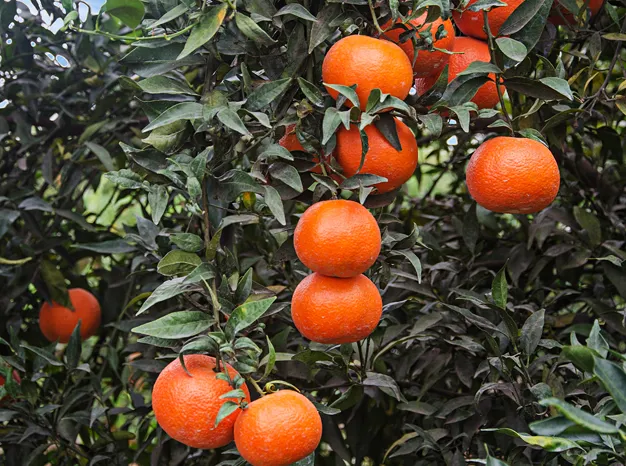In its April 29 edition, the key report about citrus prices in the Region of Valencia, the one published weekly by the Lonja de Cítricos, still contained data on transactions with hybrid mandarins.

Looking back, in the 2022/23 campaign, the last Orri transactions were recorded on April 11, with an average price of 1.351 euros/kilo, compared to the 0.825 euros/kilo reported last week. The Nadorcott recorded its last transactions in the report of April 22, 2024, almost a month later compared to last year, and with an average price of 0.475 euros/kilo, almost 46% lower. This is the same average price at which Tango mandarins were purchased at origin last week, which entails a 51% drop from the 0.975 euros/kilo reported on March 6, 2023.
"It should be taken into account that these are contract prices at origin agreed between commercial operators and producers, and that ceasing to register transactions does not imply that there is no longer fruit on the trees. This year, there have continued to be transactions for much longer than last year and, in fact, we think that there will continue to be some for two more weeks, although increasingly fewer," says Jenaro Aviñó, president of the Lonja de Cítricos. "Prices have also seen a significant drop."
"From January to March, the Tango and Nadorcott, which last year were sold for up to 1 euro/kilo, recorded a drop of around 35%, and this has also affected the Orri variety, despite its production being highly regulated."

"There hasn't been one single reason for this drop," says Jenaro. "On the one hand, the production of late premium varieties has increased. Some young plantations have come into production, and as time passes, trees produce more, so in general there has been an increase in the volumes produced."
"Last year there was a significant drop in the production of these second-season mandarins due to adverse weather conditions, as the rain and wind caused a lot of flower loss when the Tango and Nadorcott were in bloom. In fact, the demand was very high last year and, if there had been a bigger supply of second-season oranges and mandarins, everything would have been sold, and at a good price. This year, however, in addition to a greater production, consumption has also dropped."
"It hasn't been as cold in Europe, and there has also been greater competition from other fruits, as revealed by consumption data from the Ministry of Agriculture. However, the effect of the 'pinyolà' (a consequence of cross-pollination) has also been quite noticeable."

"In general, since the Clemenules, there have been seeds in mandarins and clementines, and this is something that can also cause consumption to fall. It is an issue that is not being addressed with the urgency it requires, and it would be necessary for the Administration to take action and establish measures for the beekeeping and fruit sectors to prevent it from happening."
"The formation of seeds in mandarins is due to cross-pollination between varieties. The sector has proposed a promotion of varietal reconversion on the part of the Administration. In Spain, the citrus sector has a complete map of varieties that should facilitate a good planning of the plantations. We have also asked for the promotion of the use of nets with pollinating varieties. We have already seen this at work in California, with the Nadorcott variety, and it does very well at preventing seed formation."
Will the trend towards lower prices this year have any impact on the plantations?
In the citrus sector, it is important to keep an eye on prices each campaign, especially in the case of mandarins. In fact, the website of the Lonja de Cítricos has recorded over 300,000 visits this campaign from a total of more than 100 countries. In recent years, insured prices at origin are the reason behind the growth of the production of premium mandarins in Spain.
It is worth considering whether this year's declining prices might have an impact on the cultivation of varieties with royalties; however, according to Jenaro Aviñó, the economic performance of these varieties so far, as well as their quality, will guarantee new plantings. "As for what could happen in the future, we are likely to get answers in 2029, when, in theory, the Nadorcott variety will become free, and it will be possible for it to be planted without restrictions," he says.
 For more information:
For more information:
Lonja de Cítricos
C/ Conde de Almodóvar, 4
46003 Valencia, Spain
Tel.: 963 912 295
[email protected]
https://precioscitricos.com
